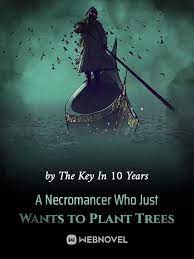Holy Roman Empire - Chapter 150
- Home
- Holy Roman Empire
- Chapter 150 - Chapter 150 Chapter 37 The Tsarist Who Follows the Rules
Chapter 150: Chapter 37: The Tsarist Who Follows the Rules
CƟntinue reading on ΒΟXNΟVEL.ϹʘM
Translator: 549690339
Every reform comes with a cost, and Franz quickly realized that. As a victim of the military reform, Franz’s three younger brothers came to protest.
Without a doubt, the three brats were met with his brutal suppression, silenced and dismissed, leaving with their tails between their legs.
(vitag.Init = window.vitag.Init || []).push(function(){viAPItag.display(“vi_765923973”)})
In fact, Franz wanted to establish a Junior Nobility Military Officer School, but in the end, due to financial constraints, had to temporarily abandon the idea.
There was no way around it, as this was determined by Austria’s national conditions. Currently, the cost of military education for nobility’s offspring is borne by the nobility themselves. If the government were to establish a Junior Nobility Military Officer School, then it would have to shoulder this expenditure.
The education of these noble offspring could not be taken lightly; it had to be elite. The cost of educating tens of thousands of these children would be at least several tens of millions of shields annually, and it wouldn’t be surprising if it exceeded one hundred million.
Apart from military and cultural classes, they also had to have etiquette classes, art classes, equestrian classes, hunting, fencing, religion, and social dance gatherings…
In short, it was a costly affair. This type of elite education wasn’t affordable for ordinary noble families. So, what could be done?
The answer was very simple: parents would educate the next generation themselves, or have their children learn with relatives and friends.
Of course, this referred to the well-established nobility. The newly risen nobility didn’t have the ability to provide such high-end education for their children, and without the nurturing of noble qualities, they were referred to as parvenus.
After all, the condition of Austria’s common schools was poor, but like the rest of the Germany Region, they still had basic military training, which was a tradition.
As the saying goes, the upper echelons set the example, and it was a normal social phenomenon to imitate the ruling class. Austrian public schools had poor conditions, yet did not lack basic military training.
The disbandment of the Milk Bottle Army was merely a minor episode in the military reform, with no substantial impact. These honorary officers did not rely on Franz for their pay.
The real restructuring was in the logistics management system. As military weapons constantly evolved, the demands for logistical support increased. The traditional logistics system could no longer meet the needs of modern warfare.
(vitag.Init = window.vitag.Init || []).push(function(){viAPItag.display(“vi_765923973”)})
To put it simply, a dedicated logistics support system was established, and the army’s logistical staff was strengthened.
It is worth mentioning that a healthcare system also appeared within the Austrian Army, becoming an important part of the logistics system. Each company established a medical unit, and at the division level, there were specialized field hospitals.
Regrettably, the medical system was still just a shell. These establishments were only theoretically in place, and the field hospitals had a mere handful of doctors who could only ensure the survival of officers.
Based on the current state of affairs, Franz reckoned it would take at least three to five years for these institutions to be fully staffed, and training medical personnel also required time, even for learning basic battlefield first aid.
Given the level of medical technology of the era, it was better to have something rather than nothing. Franz did not expect them to be able to save those with severe wounds; ensuring the survival of those lightly injured was sufficient.
In this era, the high death rate on the battlefield was chiefly due to wound infections. While advanced anti-inflammatory drugs were unavailable, alcohol was still plentiful in Austria.
Not long ago, Franz had even managed to produce the Miracle Penicillin, originally planning to earn money by selling it.
Unfortunately, even if penicillin could be concocted using primitive methods, this did not mean it was the life-saving penicillin that could be used for medical treatment. There were professional considerations involved.
The participating scientists were stunned, but they had to continue their experiments. If they could not find the perfect balance, the miraculous life-saving medicine could turn into a deadly poison.
Historically, penicillin was discovered in 1928, but clinical trials were not completed until the end of 1940. Of course, research had been interrupted along the way.
When the most suitable penicillin for human use could be reliably produced was ultimately dependent on the efforts of these scientists, Franz felt truly powerless.
(vitag.Init = window.vitag.Init || []).push(function(){viAPItag.display(“vi_765923973”)})
If even laboratory products were difficult to handle, the transition from laboratory products to industrial production naturally involved considerable challenges.
Historically, because of the outbreak of World War II, the Americans set a new record in pharmaceutical research and development history by moving from confirming the effectiveness in the lab in 1940 to starting industrial production in 1942.
Franz did not believe that Austria’s industrial technology of the time could compare to that of the Americans during World War II. Forget three years; if this goal could be achieved within ten years, that itself would be cause for universal celebration.
Franz could only sigh at how misleading wartime propaganda could be.
The Americans first started the mass production of penicillin in 1943, and then supplied it to the Allied Forces. It was a mystery where the penicillin looted by the protagonists in the Japanese Army came from, as it seemed to precede even the laboratory products.
After this failure, Franz directly abandoned the idea of making money by selling medicine.
In an age where biotechnology, medical technology, and industrial technology all fell short and he had no system at his side, what could he do?
St. Petersburg
Since the secret Russian-Austrian treaty was signed, the Russians had started preparing for war.
The Tsarist Government was not foolish; they were well aware that the European Continent had just undergone a major revolution, with governments across the nations busy consolidating their power and implementing social reforms. It was the best time for them to expand their territory.
“My Minister of Finance, when will we be able to raise the funds for the war?” Nicholas I asked with dissatisfaction.
(vitag.Init = window.vitag.Init || []).push(function(){viAPItag.display(“vi_765923973”)})
Naturally, preparing for war required money. What war could be fought without it? It had been almost a year since last year, and the Ministry of Finance still had not raised the necessary funds for war, so Nicholas I was naturally dissatisfied.
Later generations all considered the agriculturally backward Russian Empire to be one of the poorest among the great powers, yet in this era, the Russian Empire was far from poor, with fiscal revenues as high as 200 million silver rubles.
(1 Gold Ruble = 10.3 Silver Rubles; one Silver Ruble was about half a two of silver.)
As a feudal dynasty, the Russian Empire’s industrial development was naturally mediocre, and agricultural technology was equally lackluster, but who could deny the wealth of their extensive mineral reserves?
In the mid-19th century, the Tsarist Government discovered a large amount of gold and silver mines in newly expanded territories. In 1840 alone, the Tsarist Government minted 439.9 million silver coins and 134 million gold coins.
Such a large amount of gold and silver coins minted, aside from suggesting the Tsarist Government’s robust finances, had a frustrating rationale: their paper currency was weak.
During the reign of Alexander I, the Russians also followed the trend of issuing paper currency. However, European merchants deemed the Tsarist Government untrustworthy and refused to use paper rubles. Consequently, the value of paper rubles naturally plummeted.
In 1817, Alexander I changed the currency policy, forbidding the issuance of paper money. The government adopted a policy of contracting paper currency, progressively withdrawing circulating paper rubles from the market.
Trade without paper currency naturally relied on gold and silver coins. This proved effective; the bi-metallic gold and silver standard was immediately well-received by merchants across Europe.
From these figures, it would appear that the Tsarist Government of this era should have been quite wealthy. The value of 100 million two of silver before devaluation was no small number and far exceeded Austria’s revenue before its reforms.
Being a feudal dynasty, the Russian Empire had no social welfare expenses. The government’s fiscal income mainly supported the military and administrative agencies, which should have been adequate.
Nicholas I and Franz faced a common social problem—corruption. No matter how wealthy a country was, if this issue could not be resolved, the finances were unlikely to be prosperous.
“Your Majesty, the expenses are enormous, and I fear we will have to wait until the second half of next year,” replied the Minister of Finance, Aristane.
Nicholas I frowned and asked, “Haven’t we already levied a war tax once?”
“Your Majesty, the Nobility has not yet paid this war tax. They request to pay it after the outbreak of the war; therefore, the war tax has fallen below our expectations,” Aristane explained.
This was all standard practice. The Russian Empire’s Nobility taxes were always difficult to collect. The credibility of successive Tsars was not very good, and the Nobility feared being deceived by the Tsarist. Unless the war had already broken out, it was very difficult to collect taxes in advance.
Of course, if Nicholas I took a firmer stance, he could have collected the taxes earlier, but this would have affected domestic unity and stability.
However, Nicholas I would not do so; in Europe, rights and responsibilities were clearly distinguished.
During wartime, the Tsarist had the right to levy a war tax, and the Nobility had an obligation to pay it, but wasn’t war not yet declared?
“Can’t the taxes from various regions be collected in advance?” Nicholas I asked, frowning.
“Your Majesty, we have business contracts. If we ask for early tax payment, the cost to us would be too great,” Aristane patiently explained.
Yes, this was the legendary tax farming system.
By now, almost all European countries had abolished it. However, Russia was too vast, and the cost of direct tax collection by the government was too high and unreliable, so it had not been abolished.
Nicholas I furrowed his brow and said, “Let it be then; we still need time to gather strategic materials. However, the collection of military funds must be a priority for the Finance Ministry. I do not want our military actions to be delayed because of a lack of funds.”
Unlike other Tsars, Nicholas I was a responsible person who disliked breaking rules. Once he committed to a goal, he pursued it relentlessly.














